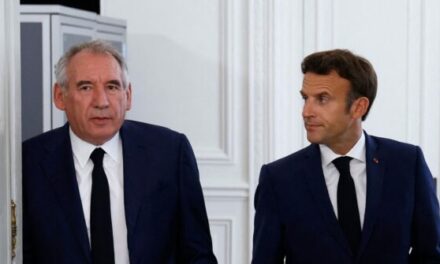We support our Publishers and Content Creators. You can view this story on their website by CLICKING HERE.

The government of Argentina on Monday eliminated a hefty 30 percent “inclusive” surcharge tax on foreign currency debit and credit card purchases imposed by the previous socialist administration.
The measure, which reportedly benefits some 11 million citizens, comes after President Javier Milei decided not to renew the tax past the five-year duration established by its law.
The now-repealed “Tax for an Inclusive and Solidary Argentina,” more commonly known by its Spanish initials, “PAIS,” was a surcharge of a “temporally” nature implemented by socialist former President Alberto Fernández, who signed it into law during the first days of his administration in December 2019.
The PAIS tax, part of a broader “social solidarity” bill, sought to discourage Argentines from spending the nation’s dwindling foreign currency reserves by imposing an up to 30 percent surcharge on card transactions such as purchases, foreign cash withdrawals, flight tickets, and tourist packages. By 2023, the PAIS tax surcharge had been extended to other foreign currency transactions such as the payment of digital services, international freight, and imports in general.
PAIS was part of the previous leftist administration’s highly convoluted multi-tier foreign currency control scheme that Milei has vowed to completely eliminate in 2025.
Milei confirmed the elimination of the PAIS tax on Friday in remarks given during inauguration of the new headquarters of the Córdoba Stock Exchange. The Argentine president further remarked that, unlike previous cases of taxes of a “transitory” nature in Argentina that have remained active through time since the 1930s, his administration marked the first time in Argentine history that a government fulfilled a promise to eliminate taxes.
“As from Monday, the PAIS Tax is eliminated. In other words, this is the first time in history that a government has complied — precisely — with the elimination of a tax,” Milei said.
“Besides, we eliminated others. I have more good news, and that is that the lowering of taxes will continue, as is our irrevocable commitment, to return the surplus in the form of relief to the taxpayer, because less taxes is more competitiveness … for everyone,” he continued.
Argentine outlets reported on Monday that the elimination of the PAIS tax immediately translated in a 30 percent reduction of foreign currency purchase card operations and an eight percent reduction in subscription services such as Netflix and Spotify. The local newspaper Clarín explained that credit card purchases made after Sunday will not be subject to the tax, regardless of when the purchase was made, as local banks adapt their respective systems to reflect the change in upcoming statements.
The Argentine outlet Infobae reported that according to estimates from the private sector, the elimination of the PAIS tax will allow companies to reduce costs and increase the availability of imported goods in the local market, leading to a positive impact on production chains that depend on foreign supplies and on the larger variety of products for consumers.
Earlier this month, in a speech commemorating the first year of his administration, Milei announced that the Argentine government is preparing a structural tax reform for next year that will introduce sweeping reforms and eliminating 90 percent of all existing taxes.
Additionally, Milei stated that his administration will eliminate the remaining currency control measures that his administration inherited, which will allow all Argentines to conduct transactions in the currency of their choosing.
By the time Milei took office in December 2023, the disastrous socialist policies implemented by his predecessor left Argentina on the brink of a complete economic collapse. Upon taking office, Milei immediately implemented a series of drastic “shock therapy” measures to avert the collapse of the country’s economy and avoid a hyperinflation spiral. Milei’s policies have dramatically reduced inflation and poverty rates in Argentina.
The president stated on Friday that his administration’s economic policies have brought Argentina “closer, day by day,” to a definitive exit of the foreign currency control measures, which he described as an “abomination that should never have existed in the first place.”

 Conservative
Conservative  Search
Search Trending
Trending Current News
Current News 







